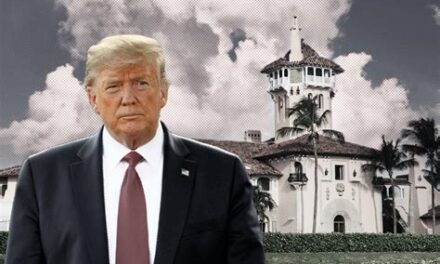The sobbing face of 8-year old José is seared into my memory. During a visit to a Catholic school classroom in Chalco, a poor community outside Mexico City, the teacher asked José to stand up and tell me about his father. His father hadn’t been heard of in over two weeks, since he had embarked upon a trek to enter the U.S. illegally to find work to feed his family.
Nearly a decade analyzing Latin American companies for Wall Street banks exposed me to the treasures of Mexico and to the great suffering endured by many of its citizens. The experience of 9/11 from downtown Manhattan was the impetus that led me to leave Goldman Sachs in order to give back to a region that had given me so much. Founding a non-profit to raise education levels in Mexico and South America is what led me to meet José in 2005.
To what extent should the U.S. open its doors to the millions of people around the world, like José’s father, who seek escape from desperate circumstances?
Immigration and compassion are essential parts of the American DNA. Since its foundation, the U.S. has done a great job absorbing mostly documented, European immigrants into our Anglo-Protestant culture. Immigration and the openness and fluidity of our markets also have been critical ingredients of our extraordinary economic success.
Today the majority of immigrants come from non-European cultures, many without documentation, and some 15% of our population is comprised of immigrants, the highest level in our history.
Add to this mix the fact that the broader world is experiencing a clash of three powerful forces – economic dislocation, Islamic extremism, and anti-nation-state secularism.
So it should come as no surprise that immigration has become a defining political issue of our day, making the response to the ‘how many and who should we admit’ question more complicated than it may initially appear.
The unspoken backdrop of the immigration debate is a questioning of the relevancy of the nation-state with its unique set of historic, religious, linguistic, and cultural elements. For many, particularly those who have benefited from globalization and the technological march, the nation-state has become passé perhaps, even, “racist”.
U.S.-Mexican relations have been caught in the cross-fire of these complex, broader issues. Those calling for more open borders with our southern neighbor do not seem to appreciate this.
Mexico is a proud nation with understandable historic sensitivities vis-à-vis the U.S. Publically antagonizing a weakened Mexican leader is not constructive, even as a negotiate-from-strength tactic. It jeopardizes the important role Mexico plays in border security and it is hurtful to Mexicans.
Thanks to improved relations in recent decades, which has encouraged a growing cadre of Mexican elites to study in the U.S., Mexico’s up and coming political and corporate leaders have embraced positive elements of American culture. Mexicans have become more engaged in civil society and philanthropic endeavors. It is neither right, nor in U.S. interests, to jeopardize this positive trajectory.
Nor is it helpful to use the Hitler epithet or deny that the U.S. has a legitimate right to control its borders. Outbursts on both sides reflect the untenability of the status quo.
For decades, Mexican immigration to the U.S. served as a release valve for its low growth economy. This arrangement worked fine with the U.S., until globalization and the technological revolution put downward pressure on industrial wages and job growth.
Many Americans view Mexican illegal immigration and the growing trade imbalance in Mexico’s favor, rightly or wrongly, as a cause of low unemployment and wages in the U.S. I became aware of how strongly this view is held when I was interviewed on C-Span in 2005 about the root causes of Mexican immigration. Every caller expressed deep-seated frustration with the status quo.
America’s top and upper middle classes have benefitted from legal and illegal immigration, while those at lower income levels have paid an outsized share of the direct costs. Returning to a state of equilibrium between our two countries will require a better deal for both working-class Mexicans and Americans. How can this be achieved?
First, securing the border is essential. America must be able to control who enters the U.S. for security and legal reasons. Unreasonably expecting Mexicans to pay for expanding the existing wall-fence must not overshadow, or even de-legitimize, this imperative.
Ours is the only major 1st-3rd World border in the world. It is a long border, without natural protection over most of its 2,000 miles. Per capita income (PPP-adjusted) is $54K in the U.S. and $16K in Mexico, though most Mexicans live on much less, due to extreme inequality. Until Mexico’s political and economic elite effectively address structural problems and corruption, growth will remain anemic and Mexicans will continue to seek work in the U.S. Stemming illegal immigration may provide a needed impetus to more assertive Mexican economic and political reform.
Mexican culture is animated by Iberian and indigenous roots in contrast to our Anglo-Protestant roots. Each has its respective strengths and weaknesses. A key attribute underpinning U.S. strength is the rule of law. Turning a blind eye to illegal immigration represents a descent into lawlessness with ensuing negative economic and political consequences.
Second, the U.S. should reactivate a modified temporary worker program that worked well after WWII until the mid-1960’s. Enabling Mexicans with formal work engagements to more easily enter and exit the U.S. would encourage Americans to hire within legal channels. As a needed measure, employment laws would have to be more seriously enforced.
Temporary work permits would disincentivize Mexicans from permanently staying in the U.S., helping to keep families and communities in Mexico intact. Formal work permits would also provide Mexican immigrant workers legal protections drawing them out of the shadows where they have no rights or protections.
As for José’s father, I wish I could end with a neat, happy conclusion, but I do not know how this heart-wrenching story ultimately unfolded. Even assuming the ‘positive’ outcome that José’s father successfully entered the U.S., found work, regularly sent needed funds back home, and stayed since the cost and risk to get to the U.S. was so great — most still lose. José’s family has been torn apart; his community, decimated of men and the rule of law, upon which a well-functioning civil society and robust economy depend, has experienced yet further erosion.
President Trump has credibility amongst those who want to aggressively secure our porous borders. Does Trump have the will and leadership skills to repeat a Nixon in China historic achievement? Can he improve border security and revamp immigration policy so that U.S. cultural, economic, and security interests are balanced with a humane, Christian if you will, concern for families like José’s and others fleeing even more tragic circumstances?
We know Trump is tough. Can he demonstrate that he is compassionate too?














